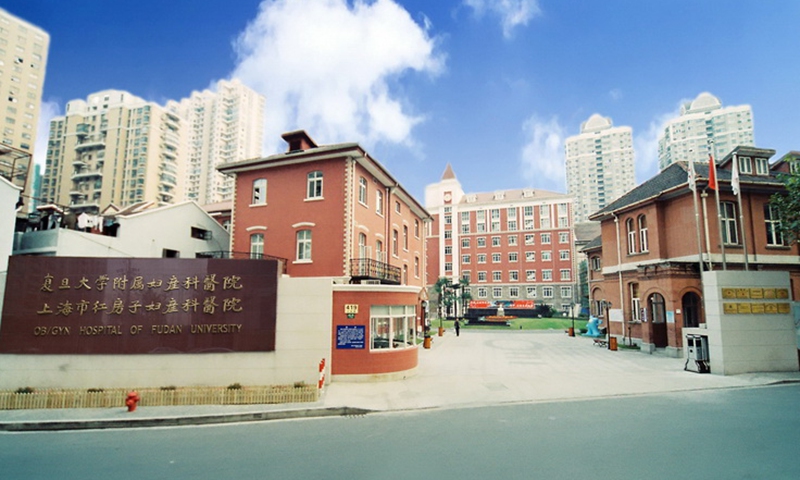
Photo: Website of Obstetrics & Gynecology Hospital of Fudan University
The announcement by Budapest's mayor to rename streets around a planned branch of a celebrated Chinese university in the Hungarian capital is a political stunt to pave the way for his competition against Prime Minister Viktor Orban, analysts said, noting it is unlikely to halt the project nor will it affect China-Hungary ties.
Citing so-called "Chinese human rights abuses" hyped by Western politicians, Budapest's liberal Mayor Gergely Karacsony announced he would rename streets in an area where the Shanghai-based Fudan University plans to open an overseas branch. The new street signs will include "Free Hong Kong Road," "Dalai Lama Street," and "Uygur Martyrs' Road," according to a BBC report on Wednesday.
It is shameful that some Hungarian politicians seek attention by hyping up China-related issues and trying to obstruct China-Hungary cooperation, Chinese Foreign Ministry spokesperson Wang Wenbin said Thursday in response to the mayor's provocation.
The practice of Chinese-foreign cooperation in running schools has been widely carried out among international educational exchanges, and is beneficial to mutual cultural interactions. Wang said the fruitful results achieved from bilateral cooperation have brought about remarkable benefits to people in the two countries.
The project to set up a branch in Budapest was agreed in December 2019, when Fudan University signed a memorandum with Hungary's Ministry for Innovation and Technology. It is the largest investment deal in Hungary's education sector in recent decades. The branch will offer master's programs in arts, medicine, business and engineering for 6,000 students with 500 faculties.
The reasons given by Karacsony for opposing the project include "Chinese influence-buying" in Hungary, according to a BBC report.
However, Chinese experts said the mayor's decision is more about reaping political influence by hyping "China threat" - the mayor has been keen on challenging the current national administration as it has maintained good ties with the Chinese government.
Karacsony in May declared his plan to contest joint opposition primaries in September and October in the hope of becoming the top challenger to current Prime Minister Viktor Orban in general elections due next April, Reuters reported.
The three street names given by Karacsony are related to topics on China's core interests in Hong Kong, Tibet Autonomous Region and Xinjiang Uygur Autonomous Region. They are also topics Western countries have been keen on hyping under the guise of human rights concerns, Liu Zuokui, a research fellow on European studies at the Chinese Academy of Social Sciences in Beijing, told the Global Times.
Karacsony is doing his utmost to draw attention from the media and public but it will not change the mainstream of friendly attitudes toward China, Liu said, warning that Karacsony's move to earn political influence by violating China's core interests is a dangerous provocation.
"Fueled by recent tense China-EU ties, some anti-China figures in certain European countries have been trying to make a fuss by politicizing personnel and cultural exchanges between both sides, with claims that China is exerting its ideological influence," Cui Hongjian, director of the Department of European Studies, China Institute of International Studies, told the Global Times.
It is easy to see through the political tricks played by opposition party figures, and they pose little substantial threat to either bilateral ties or the cooperation programs that have been sealed by the governments, Cui said.
Karacsony's political stunt came amid Hungarian Foreign Minister Peter Szijjarto's meeting with China's State Councilor and Foreign Minister Wang Yi in Guiyang, capital of Southwest China's Guizhou Province on Monday, where the two stressed the long-lasting friendship and strong development momentum between the both sides.
Cui said it is common to see prestigious universities set up overseas branches for cultural and external exchanges, and Karacsony's decision to target a Chinese university exposed the politician's double standards.
Fudan University, ranked 34th in the QS World University Rankings, is one of China's most prestigious educational institutions. The campus in Budapest is expected to be completed by 2024, and will be its first site in the European Union. Chinese leaders also voiced support for the project during the China-CEEC Summit held in February.




